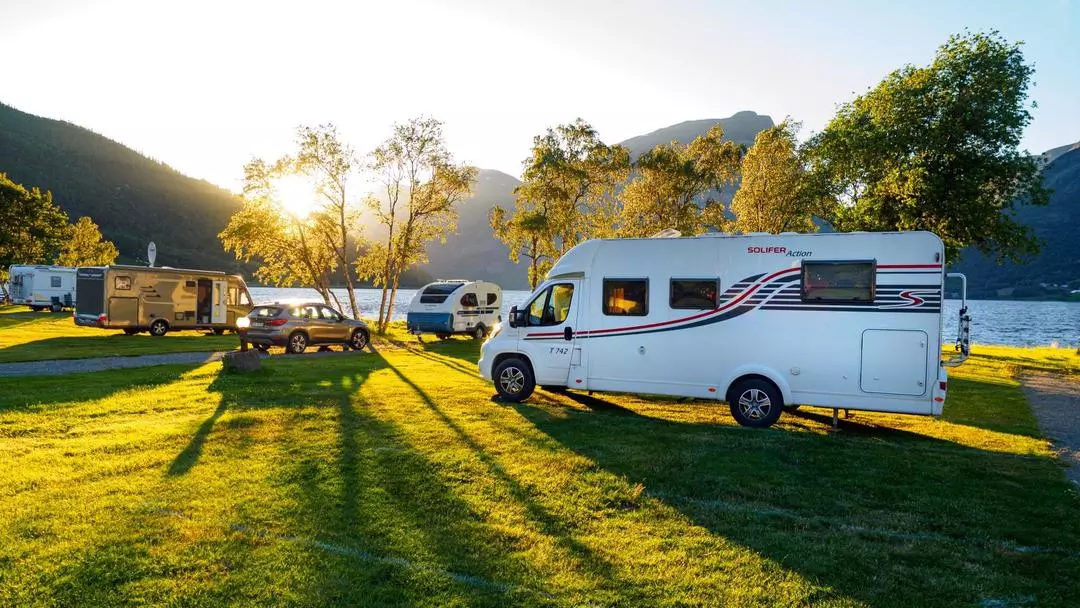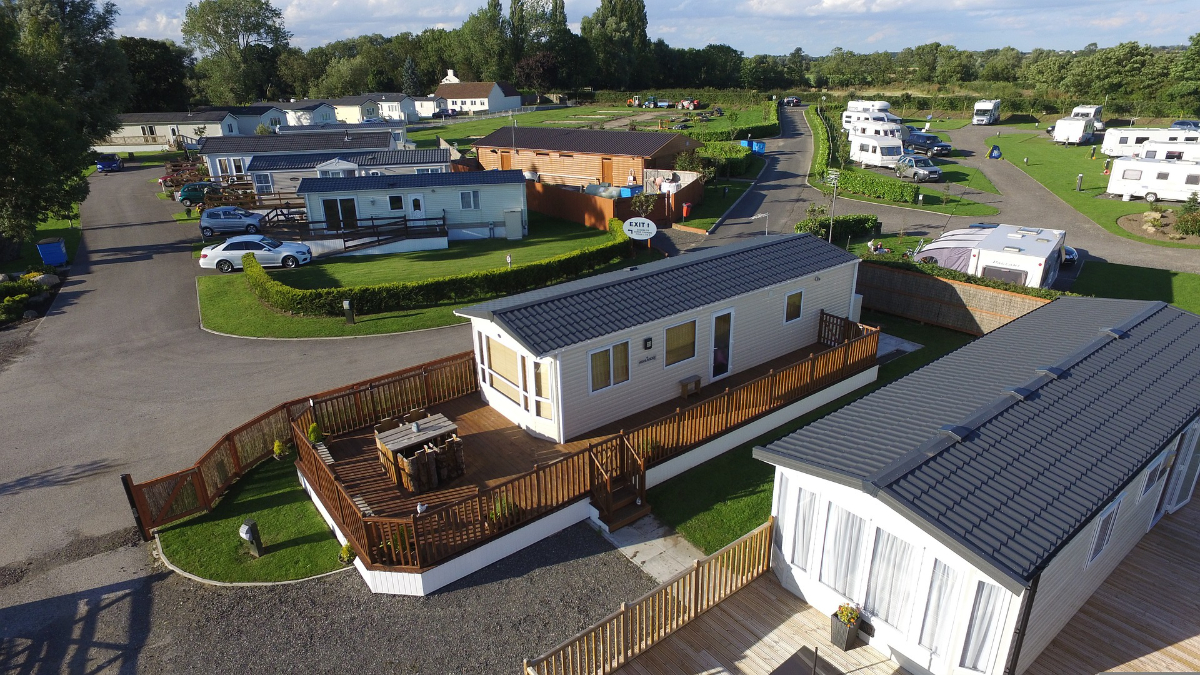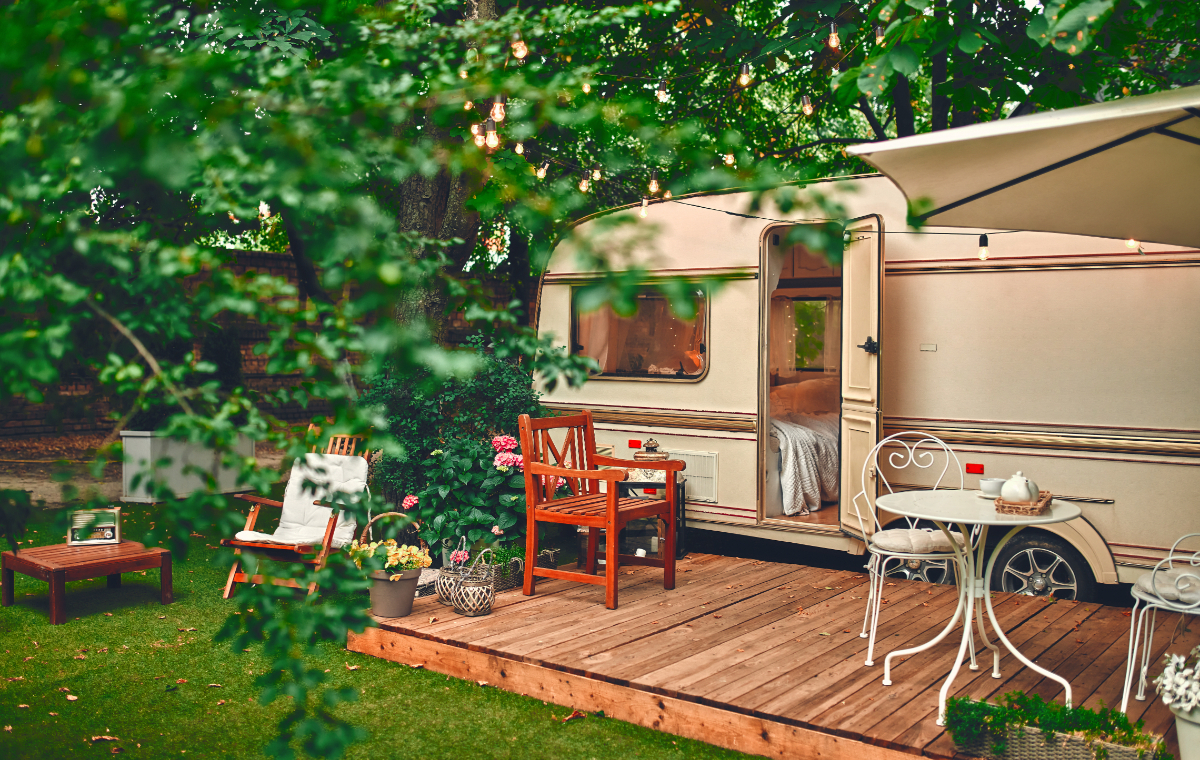Do I need planning permission to put a static caravan in my garden? Learn about the planning permission requirements in our comprehensive guide. Understand the regulations, steps, and factors involved in situating a static caravan on your property.
Rob Kestle Caravan Transportation provides static caravan transport throughout Devon, Cornwall and South England. Make informed decisions and explore the options for creating versatile living spaces with our expert insights.
Planning Permission for Mobile Homes in Gardens
Placing a caravan or mobile home in your garden doesn't require planning permission as long as it doesn't cause a material change of use. If it is used by household members for enjoyment or as additional accommodation, and the facilities of the main house are still used, it is generally acceptable.
However, if the caravan is used for separate business premises, independent rental, or as a primary dwelling unrelated to the house, planning permission may be required. Location within the actual garden is crucial, and the use should support the main house without becoming independent accommodation. Consulting with the local planning authority is recommended to ensure compliance.
Different Types of Caravans
Caravans encompass a range of structures designed for human habitation and transport. They include touring caravans, motorhomes, static caravans, park homes, and mobile homes.
Touring caravans are towed behind cars and designed for occasional recreational use. They adhere to road vehicle construction and usage standards (BS EN 1645).
Motorhomes combine living accommodations with motorised base vehicles. They are specifically designed for touring and must comply with BS EN 1646.
Static caravans, also called holiday caravans, are transported in one complete section on a trailer. They are designed for recreational use, adhering to BS EN 1647.
Park homes are caravans designed for residential use, built to BS 3632 standards. They provide long-term residential accommodation within designated communities.
Mobile homes are intended for residential use and are not towed on roads. While they don't have specific BS standards, they must pass mobility, size, and construction tests. Understanding the distinctions between these caravan types helps in choosing the most suitable option for occasional travel, temporary stays, or long-term residential use.
Key factors for placing a static caravan in your back garden
Location of the Caravan
The location of the static caravan plays a crucial role in complying with regulations and ensuring a harmonious integration with the main residence.
According to the law, the caravan must be situated within the "Curtilage" of a dwelling house, either in the garden or the driveway.
It should have a connection to the main building and not be separate or far from the main residence.

Structure of the Caravan
The structure of the static caravan should adhere to the prescribed guidelines and regulations. Additional fittings or modifications should not exceed the permissible limits.
It is important to provide accurate dimensions and details of the caravan to the local council. The caravan should be stable and not in a state of mobility as defined by the regulations.
Static Caravan and Its Uses
Static caravans have distinct advantages compared to their touring counterparts due to their stationary nature. These caravans are commonly found in caravan parks or are placed in a fixed location, as they are not designed for regular towing.
They offer comfort and amenities, including central heating, fully-equipped bathrooms, kitchens, and standing furniture. Some static caravans are furnished and equipped with electrical and plumbing facilities, providing a self-contained living space with sleeping areas and a living area with a kitchen.
Static caravans serve as an additional part of your home, providing extra accommodation for guests or creating a comfortable living space during renovation or self-build projects. However, it's important to note that living permanently in a static caravan in the back garden is typically not permitted for more than 28 days without the appropriate permissions from the local council.
Use of the Caravan
Clearly defining the use of the static caravan is essential when seeking planning permission or to inform the local council.
The use of the caravan should be in conjunction with the main house, whether it's for storage purposes or to accommodate family members or relatives.
It is advisable to communicate the intended use of the caravan to neighbours as well to avoid any future conflicts or misunderstandings.

Static Caravans on Private Land?
In most cases, you can place a static caravan on your own land or in your own garden without requiring planning permission, as long as certain conditions are met. The caravan should be located in your residential drive or garden, not in a separate paddock. It should be used by occupants who continue to utilise the facilities of the main house, such as members of your household, close family members, or short-term non-paying guests.
Additionally, the caravan should remain moveable and not be permanently connected to water and drainage systems. As long as the main house's showering and cooking facilities are usable or alternative facilities are available during renovations or construction work, planning permission is unlikely to be necessary. However, it is always advisable to consult with your local planning department or council to ensure compliance with any specific regulations in your area.
Using a Static Caravan as an Annexe in the Garden?
To use a static caravan as an annexe in your garden, you may not need to go through the process of obtaining full planning permission. Instead, you can explore the option of complying with the Caravan Sites Act, which offers a more straightforward approach. This means ensuring that the static caravan remains movable and has less substantial foundations.
However, it is crucial to check with your local planning department to confirm the specific regulations and requirements that apply in your area. By doing so, you can determine the best course of action for using a static caravan as an annexe in your garden while adhering to the applicable rules and regulations.
Self-Build Static Caravan?
When undertaking a self-build or renovation project, using a static caravan for on-site accommodation is a popular choice.
The good news is that you usually don't need planning permission to temporarily live in a caravan on your land during construction. Ensure you have permission for the project itself.
You can use existing facilities in the main house or an outbuilding for cooking and showering. However, regulations may vary, so it's advisable to consult your local planning department for specific requirements.
With these considerations in mind, a self-built static caravan can provide convenient temporary accommodation during your construction journey.

Static Caravan on Agricultural Land?
When it comes to placing a static caravan on agricultural land, the rules differ from those for residential land. Generally, you don't need planning permission if the caravan is intended for specific agricultural purposes. For example, it can serve as on-site accommodation for agricultural or farm workers, forestry workers, or seasonal workers like sheep shearers.
However, there are some conditions to be aware of. Firstly, the land must be primarily used for agricultural activities, with agriculture being the main source of income. Additionally, the land should be at least 5 acres in size. It's important to note that the caravans cannot stay on the land for more than 28 days within a 12-month period, and there should be no more than 3 caravans present at any given time.
The use of the caravans should be temporary and seasonal, specifically tied to the agricultural work being conducted. If the intention is to have the caravan permanently stationed on the land, planning permission will be required.
It's advisable to consult with the local planning department to ensure compliance with regulations specific to your area. They can provide guidance on the necessary requirements and any additional considerations for placing a static caravan on agricultural land.
Are you looking for static caravan transport for Devon, Cornwall and South West England? Contact us for caravan & abnormal load transportation.


